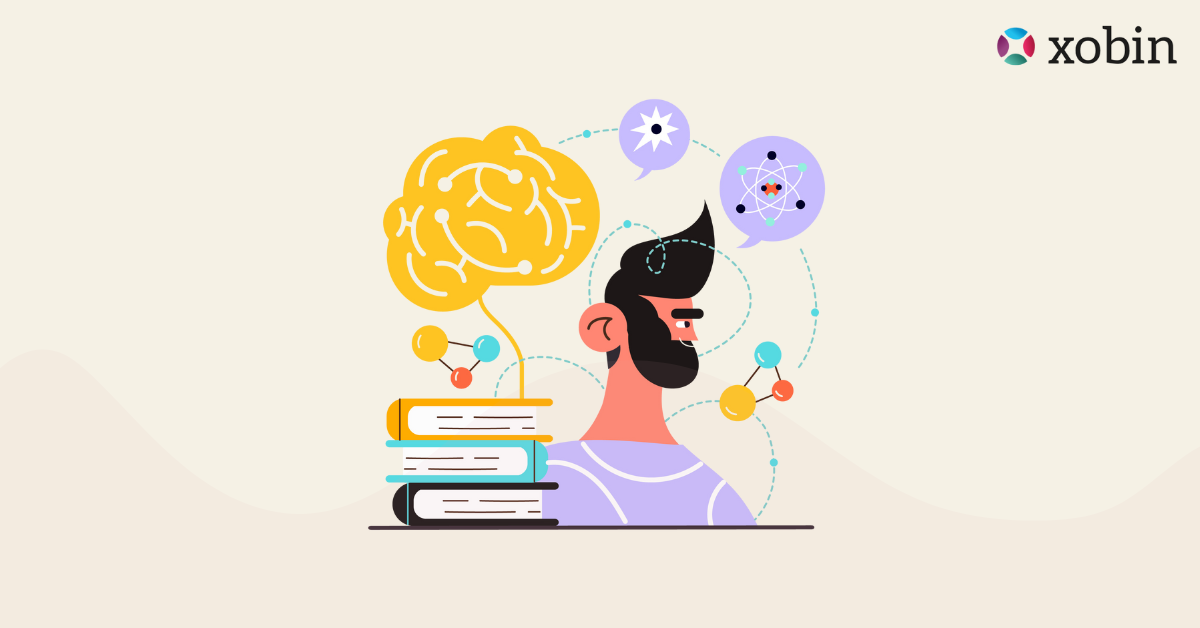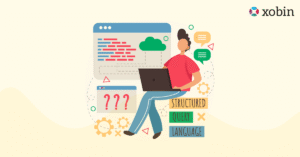Imagine your company hires a senior analyst. The candidate’s resume is stellar, but six months in, they struggle with complex problem-solving tasks, slowing down crucial projects. The cost of this mismatch is more than just salary, it affects team morale, project timelines, and bottom-line results.
Table of Contents
Now imagine a different scenario: before extending an offer, you assess candidates using an AI-powered cognitive ability assessment. The test evaluates problem-solving, verbal and numerical reasoning, and adaptability. The results predict performance, ensuring that only top candidates who can handle the role’s challenges make it through.
This is not hypothetical. The importance of cognitive assessments in hiring is enormous. They are transforming hiring worldwide, providing actionable insights to make data-driven decisions.
TL;DR – Key Takeaways!
- Cognitive ability assessments measure candidates’ problem-solving, reasoning, memory, and adaptability.
- They improve the quality of hires and predict long-term job performance.
AI-powered online tests reduce bias and streamline candidate screening. - Integrating assessments with your ATS ensures smooth, data-driven hiring.
- Focus on role-specific cognitive skills and interpret results with context.
- Avoid over-reliance on scores; combine with interviews and references.
- Xobin provides customizable, research-backed, and predictive cognitive testing.
- Using cognitive assessments enhances employee productivity, retention, and workforce planning.
What Is Cognitive Ability Assessment?
A cognitive ability assessment is a structured evaluation that measures a candidate’s mental capabilities. These tests assess how well individuals can process information, solve problems, learn new concepts, and adapt to changing situations. Unlike traditional interviews that rely heavily on subjective judgment, cognitive assessments provide objective, quantifiable insights into a candidate’s potential.
Cognitive assessments typically focus on various domains, such as
- Problem-solving and logical reasoning: Understanding patterns, identifying solutions, and making decisions efficiently.
- Verbal and numerical reasoning: Evaluating comprehension, communication, and mathematical skills.
- Memory and attention to detail: Measuring cognitive endurance and the ability to focus under pressure.
- Critical thinking and adaptability: Understanding how quickly candidates can learn and adjust to new challenges.
For executives, integrating a cognitive ability assessment in the hiring workflow ensures that your workforce is not only competent but also capable of handling complex responsibilities and contributing to long-term success.
Benefits of Cognitive Ability Testing in Employee Selection
Implementing an online cognitive ability test for hiring brings several strategic advantages to your organization:
1. Improved Quality of Hires
Research shows that cognitive ability assessments have high predictive validity in forecasting job performance. By identifying candidates with strong cognitive skills, companies reduce the likelihood of hiring mismatches, which can save significant costs associated with turnover and retraining.
2. Objective and Bias-Resistant Hiring
Unlike traditional interviews, AI cognitive ability assessments for employment minimize unconscious biases. AI-powered talent assessment platforms, such as Xobin, provide standardized testing environments that ensure fair evaluation based on actual cognitive skills rather than subjective impressions.
3. Enhanced Employee Productivity
Employees selected through pre-employment cognitive assessments often demonstrate superior problem-solving abilities and efficiency. High cognitive capability correlates with better decision-making, creativity, and adaptability, critical traits in today’s competitive business environment.
4. Efficient Talent Screening
For large-scale recruitment, cognitive ability assessments streamline candidate screening by quickly identifying top performers. This enables HR and leadership teams to focus on high-potential candidates, reducing hiring time and costs.
5. Strategic Workforce Planning
Understanding the cognitive skills assessment for job candidates allows leaders to map skills gaps, design targeted training programs, and build a workforce capable of meeting future challenges.

How to Implement Cognitive Ability Assessments in Your Hiring Process
Successfully integrating cognitive ability testing requires a strategic approach:
Step 1: Define the Role and Key Cognitive Skills
Identify the cognitive skills critical for the position. Roles in analytics or strategy may require strong numerical reasoning and problem-solving skills, while leadership positions may benefit from enhanced verbal reasoning and adaptability.
Step 2: Choose the Right Assessment Tools
With Xobin’s skill test portfolio, you can choose from hundreds of pre-built cognitive, technical, and domain-specific assessments. Whether you need a cognitive ability test for employment or role-specific skill evaluations, Xobin’s library ensures precise, reliable, and role-relevant testing.
Step 3: Integrate with Existing HR Processes
Embed assessments into your hiring workflow seamlessly. For instance, integrating cognitive ability assessment platforms with your Applicant Tracking System (ATS) ensures smooth candidate management and data tracking.
Step 4: Interpret Results with Context
Use assessment results in combination with interviews, experience, and references. Focus on cognitive endurance and job performance rather than solely on test scores to predict long-term success.
Step 5: Provide Feedback and Continuous Improvement
Offering candidates constructive feedback enhances the applicant experience. Internally, track assessment effectiveness by measuring predictive validity of cognitive ability tests in real-world performance metrics.
How to Assess Cognitive Skills in Job Candidates
Evaluating cognitive capabilities effectively requires a mix of approaches:
1. Numerical Reasoning Tests
Measuring the ability to work with numbers, interpret data, and solve mathematical problems is important for finance, analytics, and engineering roles. Xobin’s numerical reasoning tests provide AI-powered evaluation for accurate results.
2. Verbal Reasoning Tests
The Verbal Reasoning Test evaluates comprehension, logical deduction, and communication skills, essential for leadership and client-facing roles.
3. Logical and Abstract Reasoning Tests
Designed to assess problem-solving, pattern recognition, and critical thinking. AI tools for cognitive ability testing provide automated answer evaluation and scoring, ensuring accuracy.
4. Situational Judgment Tests
The Situational Judgment Test simulates real-world workplace scenarios, measuring decision-making and adaptability.
5. Cognitive Endurance Evaluation
Assessments like cognitive endurance and job performance tests determine how candidates maintain focus under pressure or when facing complex challenges.
5 Mistakes to Avoid When Using Cognitive Ability Assessments
Even with effective tools, companies can make errors that undermine hiring decisions. Avoid these common pitfalls:
1. Ignoring Role-Specific Requirements
Not all cognitive skills are relevant to every role. Avoid using generic tests for specialized positions.
2. Over-Reliance on Test Scores
While assessments provide critical insights, they should complement, not replace, interviews, experience, and reference checks.
3. Neglecting Predictive Validity
Use tests with proven predictive validity of cognitive ability tests to ensure they accurately forecast job performance.
4. Failing to Ensure Candidate Experience
Complex or poorly designed tests can frustrate candidates. Use intuitive platforms like Xobin’s AI cognitive ability assessment for employment to improve candidate engagement and experience.
5. Skipping Continuous Evaluation
Regularly review the effectiveness of your cognitive testing strategy. Measure outcomes such as performance, retention, and promotion success to refine your approach.
Assess Cognitive Ability with Xobin!
Xobin provides comprehensive employee cognitive testing assessments designed to help organizations hire smarter:
- Customizable AI-powered cognitive assessment: Tailor cognitive tests to specific roles for precise evaluation.
- Seamless ATS integration: Streamline your hiring workflow without manual intervention.
- Automated scoring and predictive analytics: Quickly identify high-potential talent.
- Enhanced candidate experience: Intuitive interface encourages completion and engagement.
- Research-backed cognitive assessments: Ensure hiring decisions align with performance outcomes.
Leverage Xobin’s AI-powered cognitive ability assessments to make smarter, faster, and more reliable hiring decisions. Book a personalized demo to see how data-driven hiring can transform your workforce strategy.
FAQs
1. What is a cognitive ability assessment for employment?
A cognitive ability assessment is a test that measures a candidate’s mental skills, such as problem-solving, reasoning, memory, and learning capacity, to predict job performance.
2. Why are cognitive ability assessments important in hiring?
They help organizations identify high-potential candidates, improve quality of hire, reduce turnover, and make data-driven, objective recruitment decisions.
3. What are the most common types of cognitive ability tests?
Common tests include numerical reasoning, verbal reasoning, logical reasoning, abstract thinking, and situational judgment assessments.
4. How accurate are cognitive ability tests in predicting job performance?
Cognitive ability tests for recruitment have high predictive validity and are considered one of the most reliable indicators of future employee performance across roles.
5. Can cognitive ability assessments be integrated with AI tools?
Yes, AI-powered cognitive ability assessment platforms streamline testing, reduce bias, provide automated scoring, and help identify top candidates efficiently.






